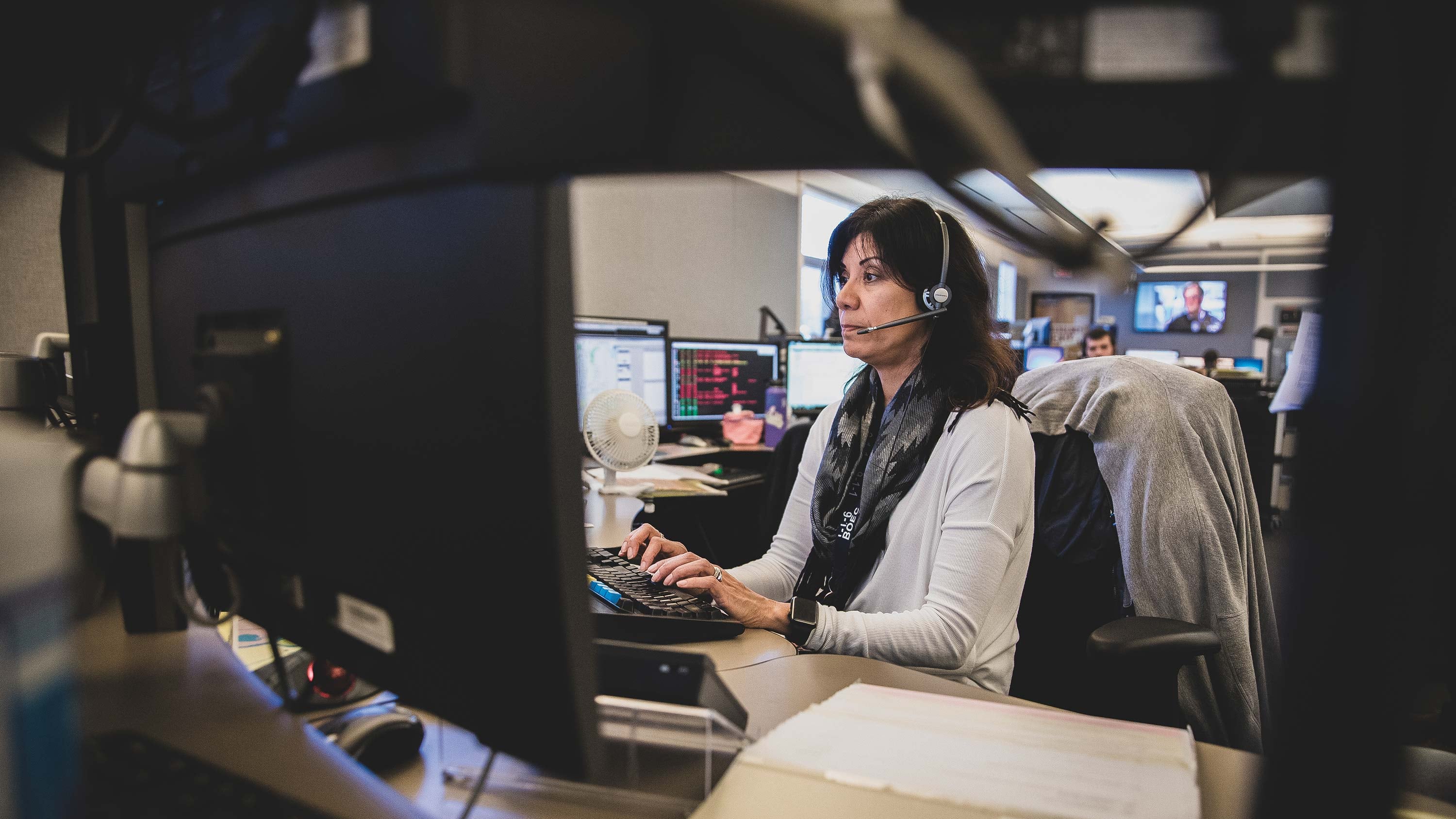Portland Mayor Ted Wheeler will propose funding in the annual budget adjustment next week to beef up staffing for the city’s 311 line, in an effort to divert a portion of non-emergency calls away from 911 dispatchers at the Bureau of Emergency Communications, who currently field Portlanders’ non-emergency calls.
The proposal, if funding is approved, would expand 311′s hours, capacity and staffing. The goal, according to the mayor’s office, is to divert up to 180,000 non-emergency calls per year from 911 dispatchers to the 311 call line.
If funded, the success of the mayor’s plan still hinges on Portlanders calling 311 instead of the current police non-emergency line.
The 311 program is housed under the Office of Management and Finance, which Wheeler oversees.
The mayor’s budget proposes using $1.3 million in ongoing funds to hire 10 additional 311 staffers and to expand the hours to 7 am to 8 pm every day of the week (the current availability is 8 am-5 pm Monday through Friday.) The proposal also asks the the Portland City Council to approve $500,000 in one-time funds to hire six temporary 311 staffers to work night shifts, allowing the line to be available 24/7 for a time until the one-time funds run out. (The overnight shift is expected to be able to take an additional 40,000 to 60,000 non-emergency calls from BOEC dispatchers.)
It’s not clear how quickly the program could launch if funded, but the mayor’s office says it will be some time after July 1 because of the time it will take to staff up.
Currently, BOEC dispatchers answer both non-emergency and emergency calls. In fiscal year 2020-21, BOEC received over 662,000 emergency calls and about 380,500 non-emergency calls.
Portlanders call the non-emergency for stolen cars, identify theft and loud music complaints, among others.
Yet this program is unlikely to significantly shorten emergency call wait times in Portland, because emergency calls are already prioritized by dispatchers. However, BOEC spokesperson Dan Douthit says some callers will abandon their non-emergency calls and call the emergency line if they’re frustrated by their wait time, clogging the emergency system with less serious matters.
BOEC is currently implementing various software systems that it says will help expedite and better streamline calls. Touted by Commissioner Mingus Mapps last fall, one of those is an automated system that aims to reroute non-emergency callers to the most appropriate channel. It also includes an automated call back software that calls numbers back that abandoned their 911 calls. Douthit says that the program will likely be implemented by summer.
In September, WW covered the software, an idea championed by Mapps. He told WW the program would be up and running within 75 days. (It’s been over 200 days.)
The mayor’s budget also proposes over $1 million in one-time funding to add five more BOEC dispatchers to the 9-1-1 call system for two years.

